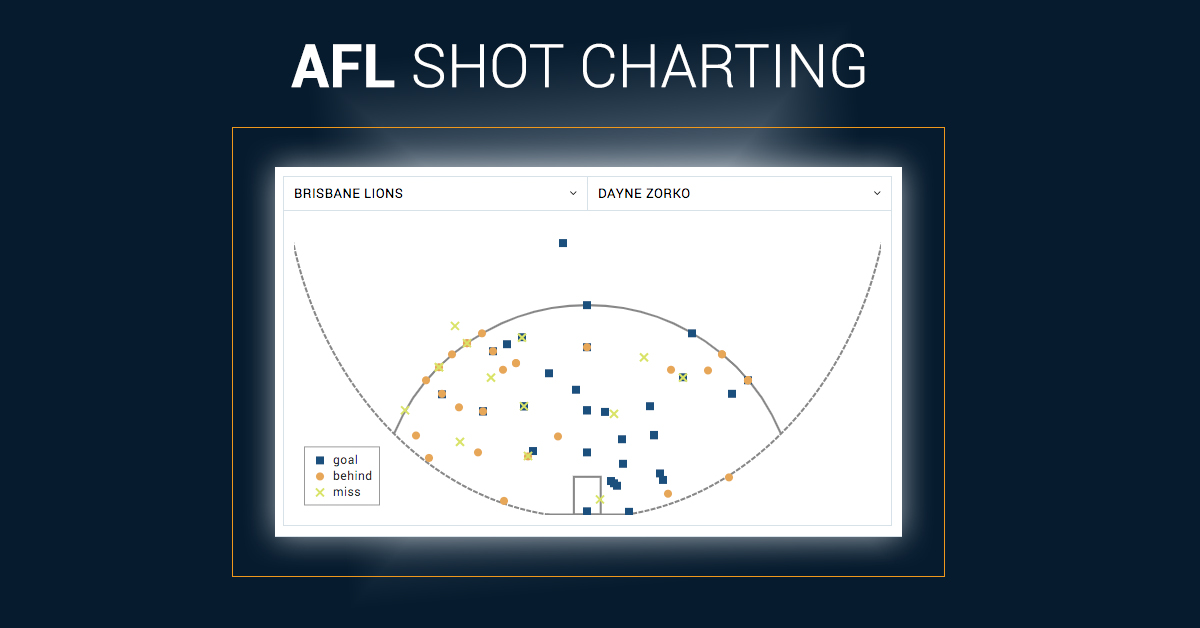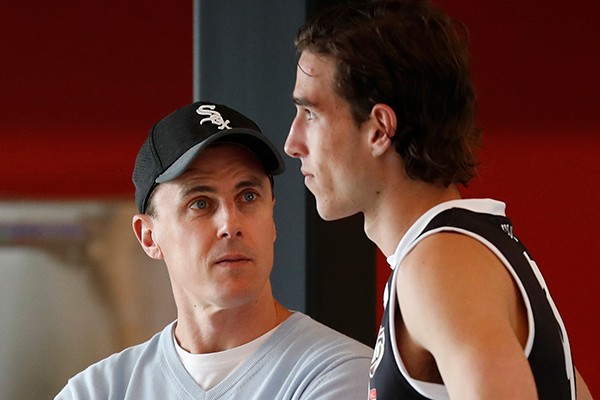Mutt
Moderator
- Moderator
- #326
Kobe Bryant relied on one repetitive skill? Really? He was largely a three-point shooter? Really?But those sports largely depend on one repetitive skill.
In the NBA, the difference between being a 37% and 33% 3 point shooter is literally worth tens of millions of dollars and the margins are so thin that one player jumping his accuracy up that much can add multiple wins a season to his team.
But goal kicking - where it isn't explained by randomness - simply doesn't have that big of an impact at AFL level.
Take Naughton. Whilst his bad goalkicking this year may have cost us about 3-4 points a game compared to a league average player, it'll regress to the mean. For example over two seasons 2019-20, his bad goalkicking "only" cost us about 15 total points - ie less than half a point a game.
View attachment 1149448

AFL Goal Kickers | Player Stats | Shot Charts | Heat Maps - Stats Insider
Dig deeper into the best and worst kicks for goal at each AFL club. Investigate every goal kicked since the start of the 2018 season.www.statsinsider.com.au
On the other hand, who knows all the other strength and conditioning work that we've done instead of making him kick the ball 100 times more has made him a much better player.
For example - the simple act of taking 1 more mark inside 50 per game (worth 3 points a shot) is three times more valuable than "fixing" his goalkicking which might cost us one point a game vs the league average as it regresses to the mean over the course of his career. (4 points a game this year, but 0.5 points in 30+ games last year).
And that's, of course, assuming that doing the goalkicking work even makes a difference (I'm not sure it does).
And the other thing is - Even all of his bad goalkicking cost us only about 24 points today?
Do you know what else will cost us 24 points? Missing 3 games. If he had a standard injury that made him miss 3 games out of the 22 this year, he is such a valuable player (8 points over replacement), that outweighs even one solitary game of bad goalkicking.
If doing extra goalkicking work made him kick one more goal than he didn't yesterday (1 point), that's still not as harmful as the fitness impact of him missing a game (worth more than 5 points) - and that effect is multiplied if he gets an injury that makes him miss multiple games.






